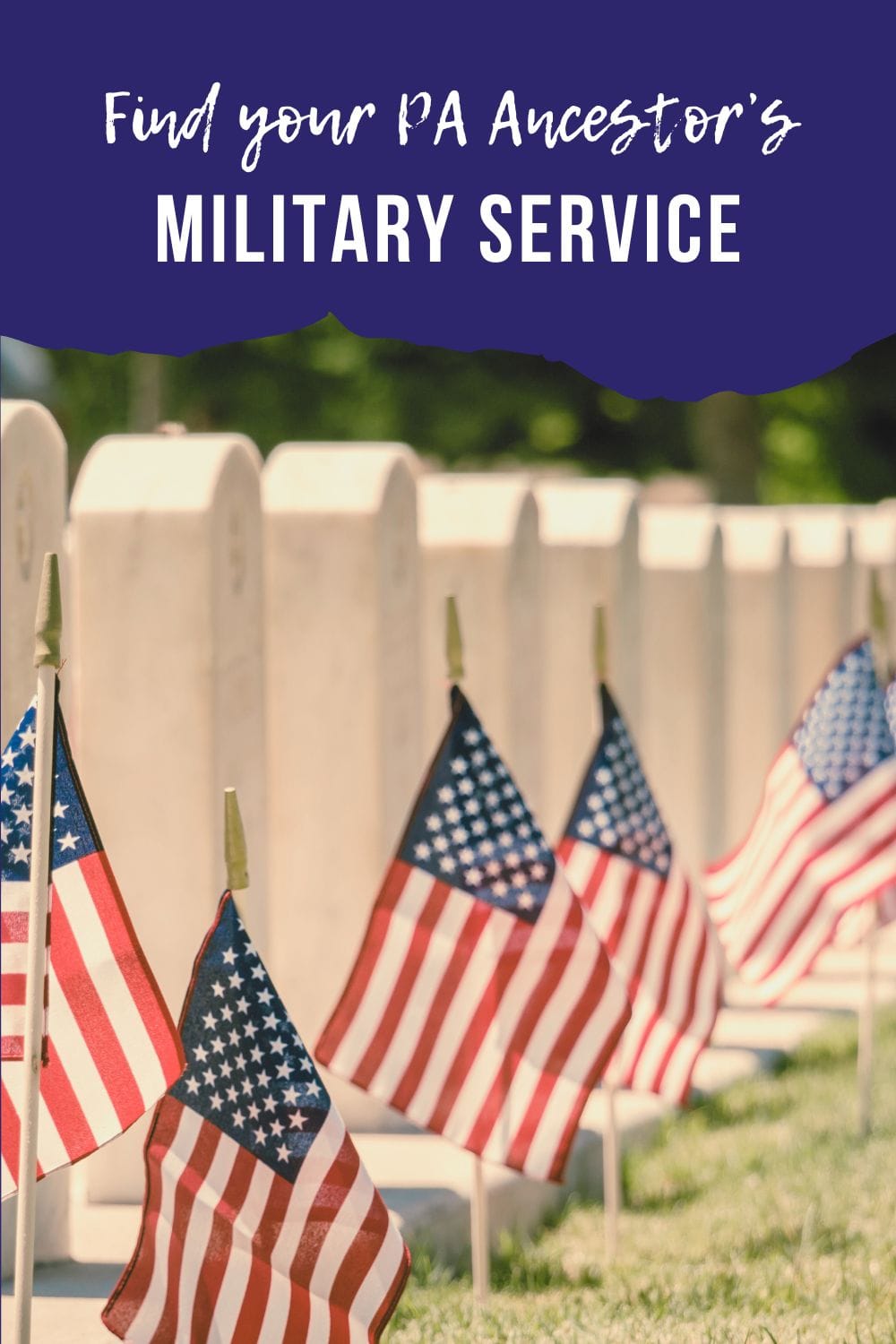Did Your Pennsylvania Ancestor Serve in the Military?
It’s easy to get overwhelmed doing military research if you start with a big website such as Fold3 or Ancestry. Use this simple two step process instead.

Researching in military records on genealogy websites can be overwhelming.
To determine is any male ancestor served in the military is an easy two step process. Many Pennsylvanians are veterans, and you can research their service online starting from the Revolutionary War to World War II. This article will show you how to determine if your ancestor served, and the next available resources to uncover their military history.
Step 1: Determine If an Ancestor was the Correct Age for Service
To start, you'll want to determine if any of the men in your family tree were of the appropriate age for military service during key wars. Most conflicts required men to be between the ages of 21 and 40, with some exceptions. For instance, during the last two years of the Civil War and World War II, the age range was extended to 18 and 45.
Here’s a handy chart showing the birth years of men who would have been eligible for different wars:
| War | Years | Birth Years Eligible for Service |
|---|---|---|
| Revolutionary War | 1775-1783 | 1735-1762 |
| War of 1812 | 1812-1815 | 1772-1794 |
| War with Mexico | 1846-1848 | 1806-1827 |
| Civil War | 1861-1865 | 1821-1847 (extended to 1849-1843) |
| Spanish American War | 1898 | 1858-1877 |
| World War I | 1917-1918 | 1877-1896 |
| World War II | 1939-1945 | 1894-1926 (extended to 1928-1898) |
By identifying the birth years of your male ancestors, you can narrow down which conflicts they may have participated in and focus your research on those specific wars.
Step 2: Use the State Archives Veterans Index
Once you've identified potential military service periods, the Pennsylvania State Archives has a valuable service you can use. The Veterans Card Index contains index cards with basic information on each veteran, including their name, war service, rank, and unit. (Until 2023, this collection was called ARIAS and hosted on an html website of the State Archives.)
To use this resource:
- Login to Ancestry.com. If you do not have an account, Pennsylvania residents can set up a free account to research state collections.
- Go to this collection: Pennsylvania, U.S., Veterans Card Files, 1775-1916.
- Search for your ancestor’s name. Use the search function to locate index cards that match your ancestor's details. Be sure to use spelling variations of the surname.
- Match the information on the card to what is known about your ancestor. Data such as birth year, death year, and county can help you ensure you have the card that matches your person.
- Download a copy of the card. The index card will provide basic information such as the veteran's name, rank, unit, and potentially more. Save a copy for yourself and future research.
These index cards can lead you to additional records, such as muster rolls, pension applications, and service records, all of which can offer more detailed insights into your ancestor’s military service.

Next Resources to Use for Military Records
Now that you have confirmed military service, research in these collections for more military records:
- Fold3: A subscription-based service that provides access to military records, including muster rolls, pension files, and more.
- Ancestry.com: Pennsylvania Veteran Application Files. These files show monies paid out to veterans from the state of Pennsylvania. On each application are details such as spouse, children, address, and military service details. Each conflict is grouped into a different collection:
- National Archives: The St. Louis branch of the National Archives holds all military service records since World War 1. All conflicts prior to 1916, are held in Washington D.C.
It’s easy to get overwhelmed doing military research if you start with a big website such as Fold3 or Ancestry. By confirming birth years to service dates and using the Veterans Cards File first, you can save yourself from pouring through hundreds of records you don’t need.
Learning the military service of our ancestors can add new chapters to our family history and give us reasons to celebrate them each Memorial Day and Veteran’s Day.
